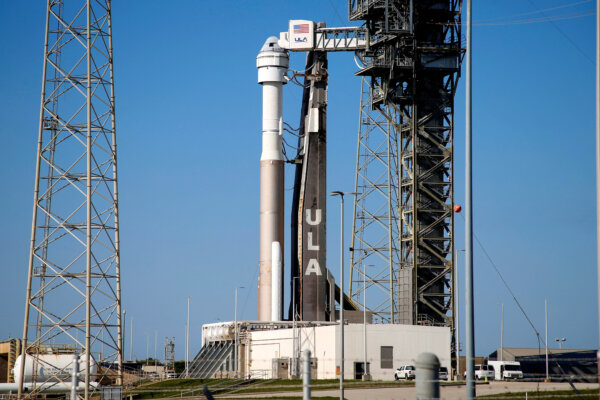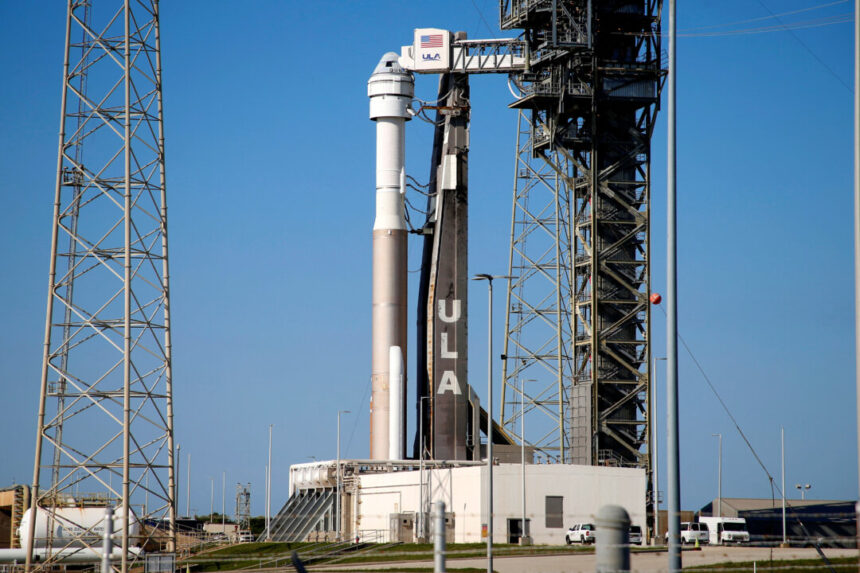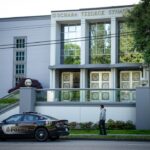
CAPE CANAVERAL, Florida—Boeing’s new Starliner space capsule’s launch countdown for its first crewed test flight was stopped on Saturday due to a technical issue, delaying the mission for at least 24 hours.
The CST-200 Starliner’s inaugural voyage to the International Space Station (ISS) with two astronauts has been eagerly awaited and delayed as Boeing aims to compete with Elon Musk’s SpaceX for NASA contracts.
The Starliner capsule, perched for liftoff from NASA’s Kennedy Space Center in Florida, faced a last-minute abort command triggered by a ground system computer, just minutes before launch.
The reason for the abort command activation and the duration of the issue resolution remain unclear. The next launch window for the mission is scheduled for Sunday, followed by opportunities on Wednesday and Thursday.
Boeing’s previous attempts to send an uncrewed Starliner to the space station faced setbacks in 2019 due to software and engineering problems. A successful try in 2022 set the stage for the first crewed test mission.
The current delay follows a May 6 countdown halt over a faulty pressure valve and subsequent engineering challenges on the Starliner, now resolved.
NASA astronauts Barry “Butch” Wilmore, 61, and Sunita “Suni” Williams, 58, were aboard the spacecraft before launch activities were suspended on Saturday.
Technicians safely assisted the astronauts out of the capsule after the scrubbed launch.
Space industry delays are common, with launches postponed for minor issues, especially in new spacecraft carrying humans for the first time.
Boeing Offers NASA 2nd Crew-Launch Option
Boeing’s Starliner program, behind schedule and over budget, aims to compete with SpaceX’s Crew Dragon, which has been NASA’s primary vehicle for ISS crew transport since 2020.
The upcoming flight would mark the first crewed launch to space using an Atlas rocket since the 1960s Mercury program.
After docking with the ISS, the astronauts will spend about a week onboard before returning to Earth for a parachute and airbag-assisted landing.
The test flight is crucial for Boeing, facing challenges in its airplane business, and aims to fulfill NASA’s need for ISS transport redundancy.
Depending on the success of the first crewed test flight, Starliner is scheduled for at least six more missions to the space station for NASA.
By Joey Roulette and Steve Gorman





